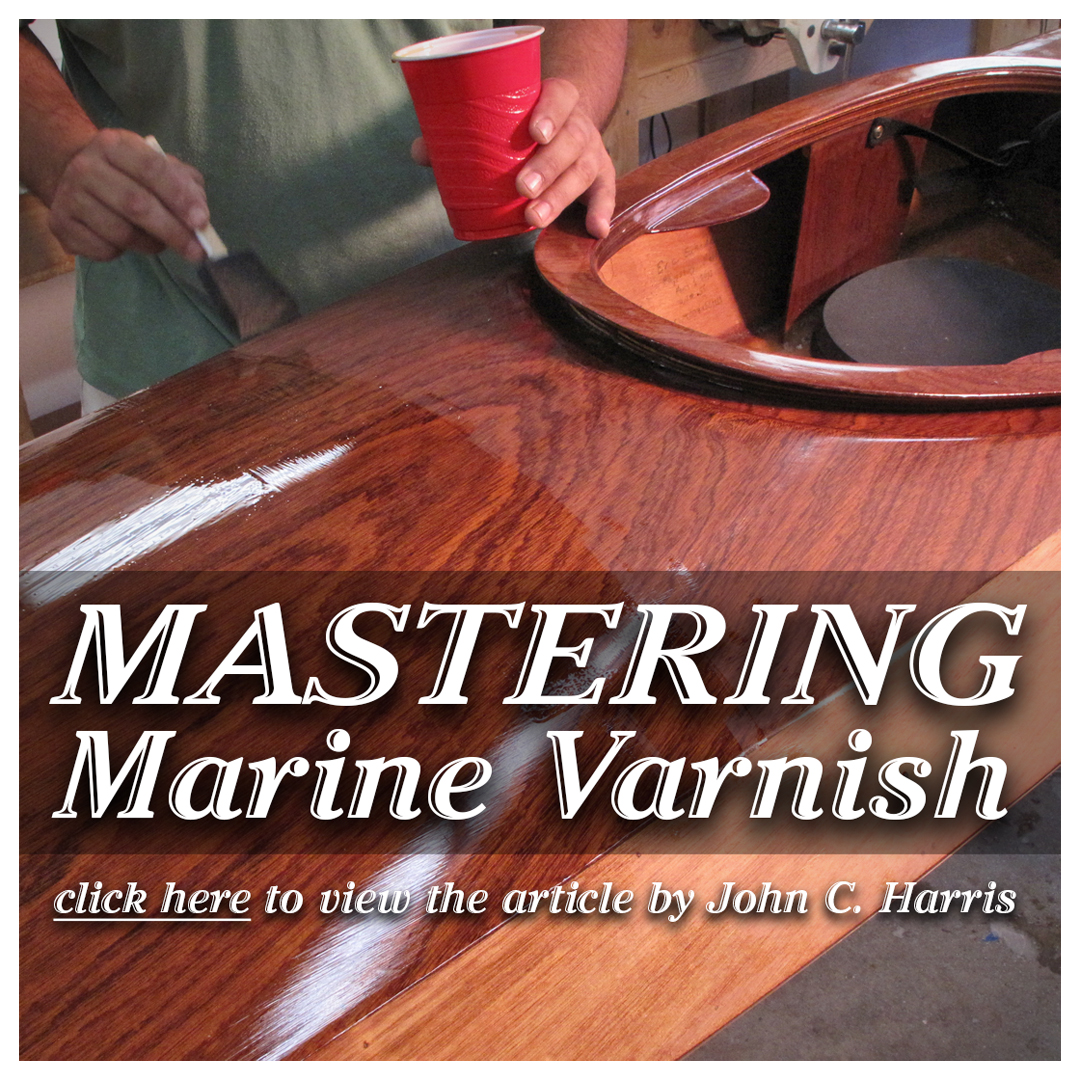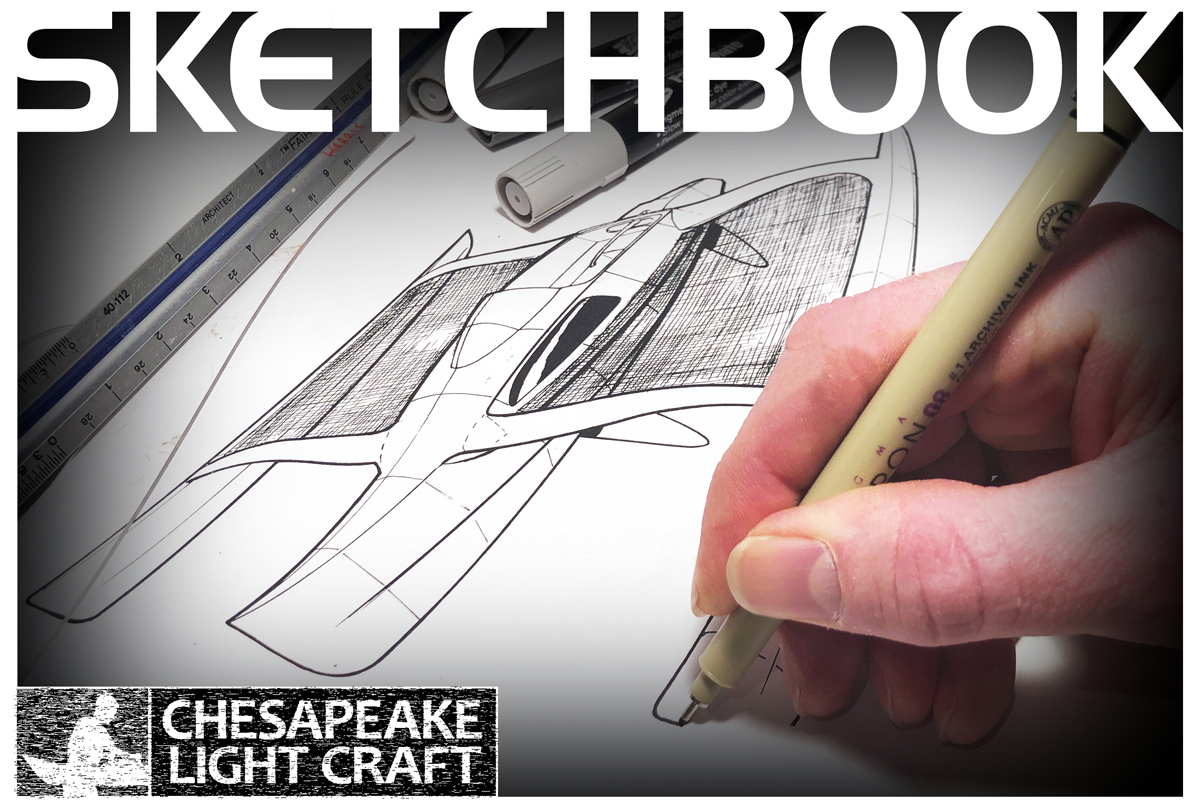Builders' Forum |
|
| ↓ Scroll to Last Comment ↓ | Forum Guidelines | Builders' Forum | |
�Well I fear I may have messed up my build, heres hoping.
I put a 4th coat on the hull of my WD 14 because my fill coat was so patchy. It was a thin coat done with roller.
That was Tues night. It still feels a bit tacky. I tried sanding with 80 grit on an orbital tonight and the finish didn't powder but instead started to gum up so I stopped. All my other epoxy in the fillets set up rock hard. I fear maybe I didn't mix properly or mis-measured? I'm wondering if this will ever harden. We had a heat wave all week where it was in the 90's and humid.
Anything I can do to get it to harden? I'm using non-blushing epoxy.
Thanks
14 replies:
RE: Tacky epoxy
Hmmm... humidity. And all the other epoxy you've mixed has hardened fine.
Try washing a small area with plain warmish water. Then wipe dry with old cotton t-shirt material. (Cotton cloth well-washed ought to be mostly lint-free otherwise I'd suggest plain white paper towel, which tends to leave bits once wet.)
That humidity - despite the non-blushing epoxy - may have produced a sticky overcoating blush on your epoxy that underneath is fine. I've had that happen a couple of times using MAS fast hardener in high humidity conditions.
Otherwise your only recourse is to set about scraping off the unhardened goop down to the solid underneath, then perhaps wipe down with denatured alcohol to remove any residue, then sand again & go for another attemp with a freshly and carefully mixed batch.
A heat gun may help soften the unhard stuff but be careful not to get the good, hard epoxy underneath too warm or you'll be scraping some of that off with the bad.
RE: Tacky epoxy
Acetone's worth a try but please be very careful if you use it! It's very flammable and the amounts you'd need to use for this task - unless you work very slowly over a small area at a time - will put quite a bit of it into the air you're breathing. Not good to breathe the fumes.
I've noticed that denatured alcohol (you in the US and not in a state that prohibits its sale?) when used for smoothing fillets tends to dissolve unthickened epoxy very well. It ought to work to remove residue amounts after the bulk has been physically removed with a scraper. It's vastly less flammable than acetone but still requires some caution when handling as it too is flammabie.
RE: Tacky epoxy
���Is blush clear? The surface looks fine.. transparent shiny and smooth. It isnt goopy, just slightly tacky like it didnt quite cute all the way.
RE: Tacky epoxy
Depends on the brand I think.
When I first saw it on some small items I'd coated I thought hmmm... maybe... let's wash 'em, see what happens.
The sticky surface was clear, yes. Transparent.
And a decent scrub under running water w/ a bit of dish liquid removed it. Follow with a clean water rinse then air dry.
If the surface is sticky/tacky but a weak poke w/screwdriver tip doesn't move the epoxy around, yes I think it's blush.
Let us know what you learn. After all that's why we're here, right?
RE: Tacky epoxy
Had the deck been epoxied yet? If that's where the sticky is, on epoxy on your deck, then no.
Bare wood, wet with plain water, might show some staining. You ought to be able to mask off any bare wood that may get wet, using thin plastic sheet & masking tape, or covering the wood with packing tape perhaps. I'd go the plastic + tape route as some packing tapes are strong enough to pull away wood fiber a little.
I wouldn't worry too much about potential for staining were it my build. I'd me more focused on getting to the cause of the sticky, getting it resolved then further along on the project.
Most woods won't stain from plain water. What's IN the water though may leave a telltale behind. Some woods, like western red cedar, have stuff in 'em ("extractives") that can dissolve in water, may cause problems if left to dry over time w/o being rinsed away.
RE: Tacky epoxy
���Well I gave it a scrub. A cloth wasnt doing much so I used a scotch pad and warm soapy water in the direction of the grain. I tried a few passes with 80 grit on a sanding block. Rather than powder, it comes off pilled up in tiny rolls and pieces. Wondering if I'm just smearing it around? I was anticipating a white chalky surface. https://flic.kr/p/2jkEvbo https://flic.kr/p/2jkEve9
RE: Tacky epoxy
Doesn't sound like the sticky I had to deal with then, more likely an inaccurate mix proportion.
Best just to acknowledge the error, revisit your measuring technique then scrape off the stuff that didn't harden, do it over. Maybe after mixing up & applying a small batch on another component or project, ensure you're doing it correctly?
RE: Tacky epoxy
Well I bit the bullet and stripped all off right down to the wood. Not as bad as I thought, and had a reason to buy a new tool so all is not lost. Cheers
RE: Tacky epoxy
Out of nothing more than idle curiosity, what new tool'd you acquire?
I have my suspicions of course, just seeking comfirnation. Glad you worked out a solution in the end.
RE: Tacky epoxy
One lesson I learned that may help others:
I bought my pumps and epoxy from different companies. Speaking to the seller of the pumps, they said that they are designed for a specific resin and since they all have a diff relative viscosity they may not work for another resin. Which they didn't!
RE: Tacky epoxy
That'd do it, yes. Mismatched pumps for the brand & formula of epoxy components used... good you got to the bottom of the issue. There's a little bit of proportioning window you can get by with, window's larger as the quantity of mixed resin increases but the single best thing you can do to ensure a successful cure is to get as close as you can to the exact proportion recommended by the manufacturer for the components you've chosen.
And heat gun was my suspicion too. Thanks for confirming that. I've had mine for 40+ years, bought for bending plastic laminate when making countertops in the '80's, served me well ever since for numerous, no-flame heating needs. Useful tool!













RE: Tacky epoxy
» Submitted by Birch2 - Sun, 7/12/20 » 7:36 AM
You did not mess up your build. . . . But you are temporarily stuck in the mud. You need to get all that sticky slop off your boat and get down to hardened epoxy/glass. I think most people use a paint scraper to get as much as possible off. When you switch to sandpaper it will gum up quickly so you will go through quite a lot of it. You might try wiping with acetone in an inconspicuous spot to see if it works as a remover. I can't remember.